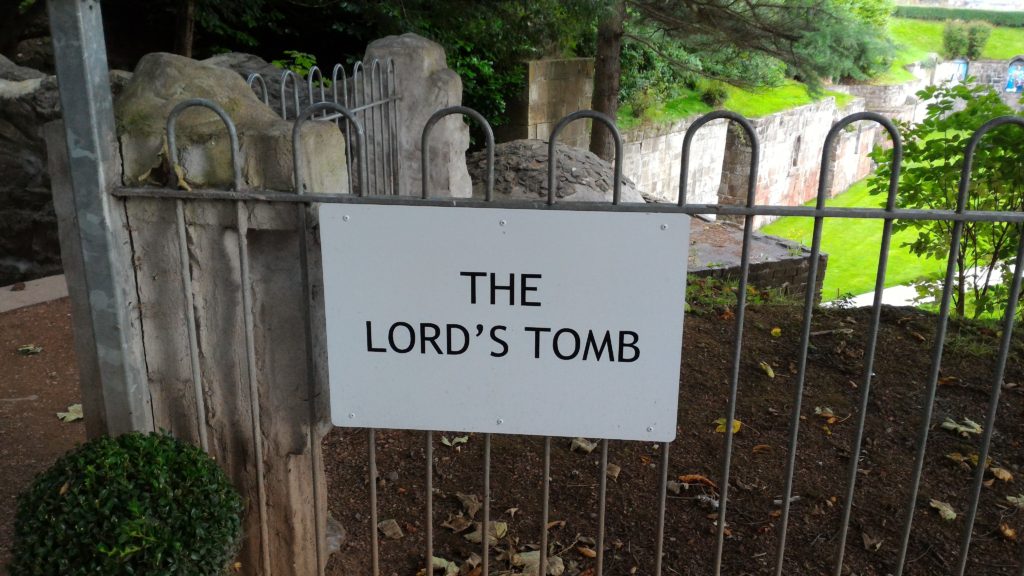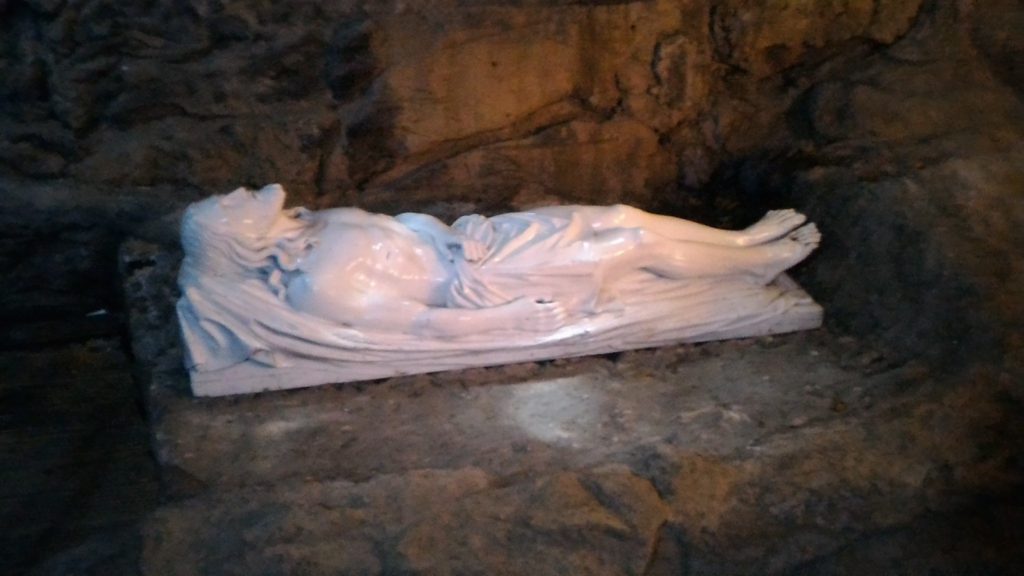26th Sunday in Ordinary Time (Year C)
Amos 6:1,4-7 | Psalm 145:7-10 | 1 Timothy 6:11-16 | Luke 16:19-31
If they will not listen either to Moses or to the prophets, they will not be convinced even if someone should rise from the dead. (Luke 16:31)
I mentioned that I visited a replica of Our Lord’s Tomb at Carfin in yesterday’s blog entry. What I didn’t say was that while I felt at peace in the darkness with a marble statue of Our Lord in repose, I jumped a little at an unexpected sound from behind me, as if a corpse suddenly reanimated itself in the shadows. It wouldn’t matter what message it might have for me; I’d either be running away or collapsed from a heart attack.
✞ ✞ ✞ ✞ ✞
Even in Jesus’ time, the Jews had a long oral and written history of the way to right living through loving others, especially those who were disadvantaged. We now have a further two millennia of scripture and tradition to drive that point home.
So if someone we knew was dead suddenly reappeared in our lives, what difference would that make? According to St. Thomas Aquinas, nothing at all:
To one who has faith, no explanation is necessary.
To one without faith, no explanation is possible.
I have a slightly different take: To one without faith, every other explanation is valid. He wasn’t actually dead, he just faked an ocean drowning for monetary reasons. Or maybe he was temporarily dead, woke up in the mortuary and somehow convinced the hysterical staff to substitute a dead John Doe for cremation in his place.
Anything but “God is real, and I’ll be drowning in eternal hellfire really soon, for all the times I ignored all the instructions of divine love and went my own selfish way.”
Lord, you have given us Moses, the prophets, the apostles, and especially Your Only Begotten Son to instruct us in Your ways. Help us to pay heed to their words, and so to act in accordance with Your will. For the kingdom, the power and the glory are yours, now and forever. Amen.


